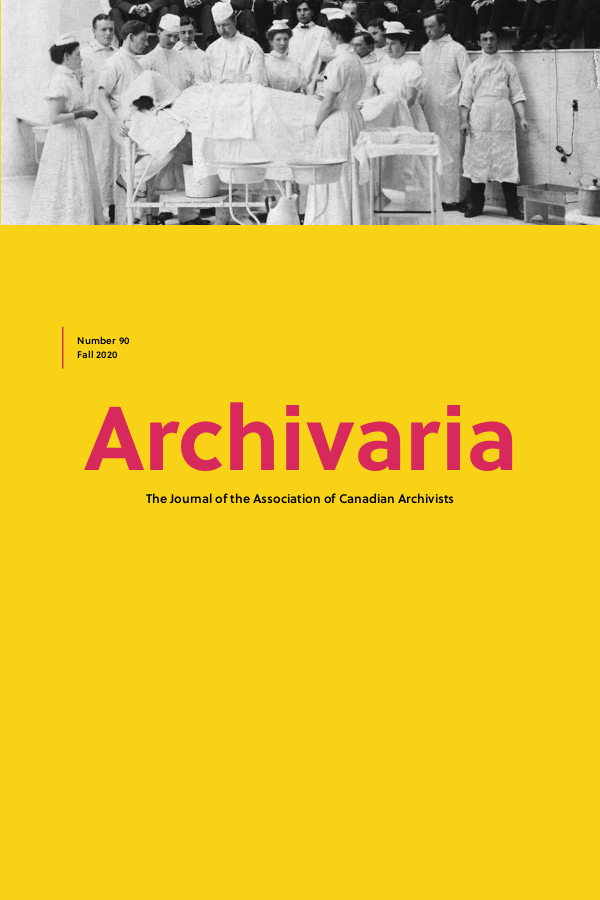Pedagogue in the Archive
Reorienting the Archivist as Educator
Abstract
Emerging over the last 10 years, the concept of the archivist as educator has begun to redefine the professional identity of the archivist. This reorientation demands that archivists be not only the keepers of records but also the ones able to aid others – by way of teaching – in the interpretation of the records under their care. However, despite a growing literature supporting the role of archivists as teachers, there remains a hesitancy within the profession to self-identity as such. Presenting an overview of recent scholarship on the topic, this article discusses the concept of the archivist as educator and its implications. Drawing on and recontextualizing the seminal work of Hugh Taylor and consciously viewed from the perspective of an archivist, this expository article presents a call to action for archivists to self-identify as instructors.
After an overview of the literature on primary source education, the role and unique knowledge of the archivist, and the development of critical thinking skills through source interpretation, this article will present a practical approach for archivists to engage with students in the classroom. To offer a springboard for future discussion, it presents a case study, using a for-credit semester-long course taught by the author, an archivist, as an example of engaging students in active learning with the express goal of improving both their primary source literacy and their archival literacy.
RÉSUMÉ
Émergeant au cours dix dernières années, le concept d’archiviste éducateur a commencé à redéfinir l’identité professionnelle de l’archiviste. Cette réorientation nécessite que l’archiviste soit non seulement le gardien des documents, mais également qu’il aide les autres – par le biais de l’enseignement – à interpréter les documents qui sont sous leur responsabilité. Toutefois, malgré les publications de plus en plus nombreuses portant sur le rôle de l’archiviste comme enseignant, les membres de la profession hésitent à s’auto-identifier comme tels. En présentant un survol des publications récentes sur le sujet, cet article aborde le concept de l’archiviste éducateur et ce qu’il implique. Puisant dans les travaux fondateurs de Hugh Taylor tout en les recontextualisant, et adoptant la perspective d’un archiviste, cet article explicatif met de l’avant un appel à l’action aux archivistes afin qu’ils s’auto-identifient comme enseignant.
Après un aperçu de la littérature portant sur l’éducation par les sources primaires, le rôle et les connaissances uniques de l’archiviste, ainsi que le développement des facultés de raisonnement critique par le biais de l’analyse de sources, cet article présentera une approche pratique pour que les archivistes s’impliquent auprès des étudiants dans les salles de classe. Comme point de départ à une discussion future, il présente une étude de cas, soit celui d’un cours crédité donné sur une session complète par l’auteur, un archiviste, comme exemple de participation des étudiants à une expérience d’apprentissage actif dont le but avoué était d’améliorer à la fois leur capacité d’analyse de sources primaires et leur littératie archivistique.
Authors of manuscripts accepted for publication retain copyright in their work. They are required to sign the Agreement on Authors' Rights and Responsibilities that permits Archivaria to publish and disseminate the work in print and electronically. In the same agreement, authors are required to confirm that "the material submitted for publication in Archivaria, both in its paper and electronic versions, including reproductions of other works (e.g. photographs, maps, etc.) does not infringe upon any existing copyright." Authors of manuscripts accepted for publication retain copyright in their work and are able to publish their articles in institutional repositories or elsewhere as long as the piece is posted after its original appearance on archivaria.ca. Any reproduction within one year following the date of this agreement requires the permission of the General Editor.





